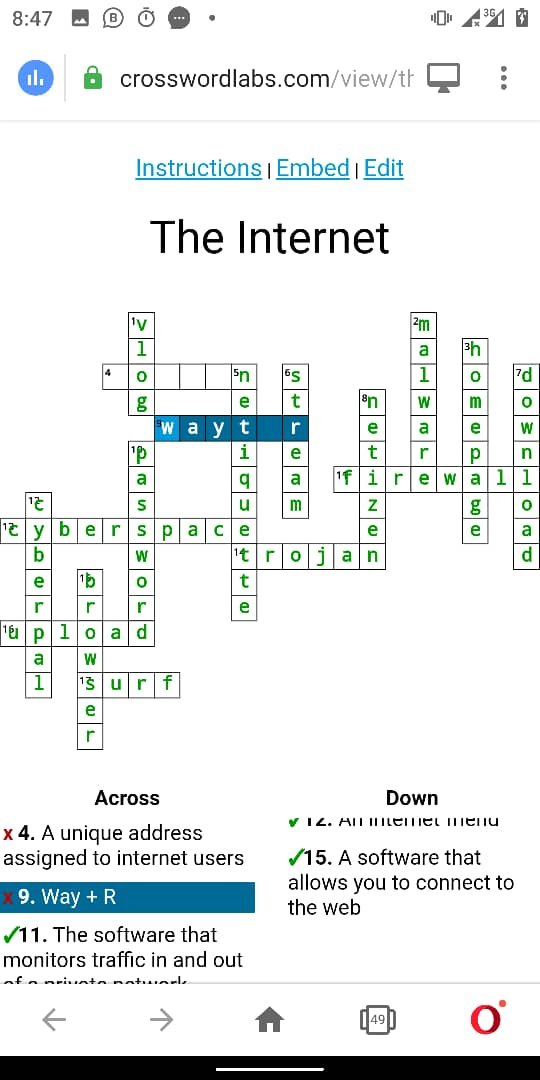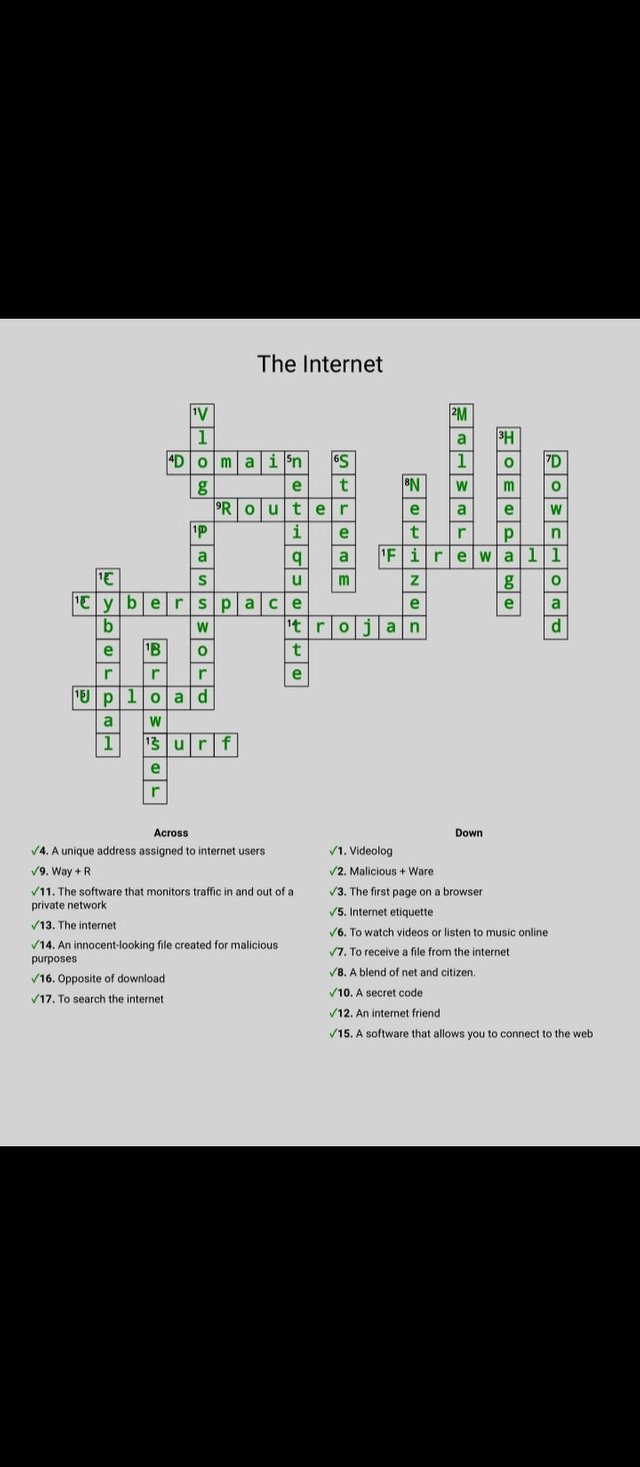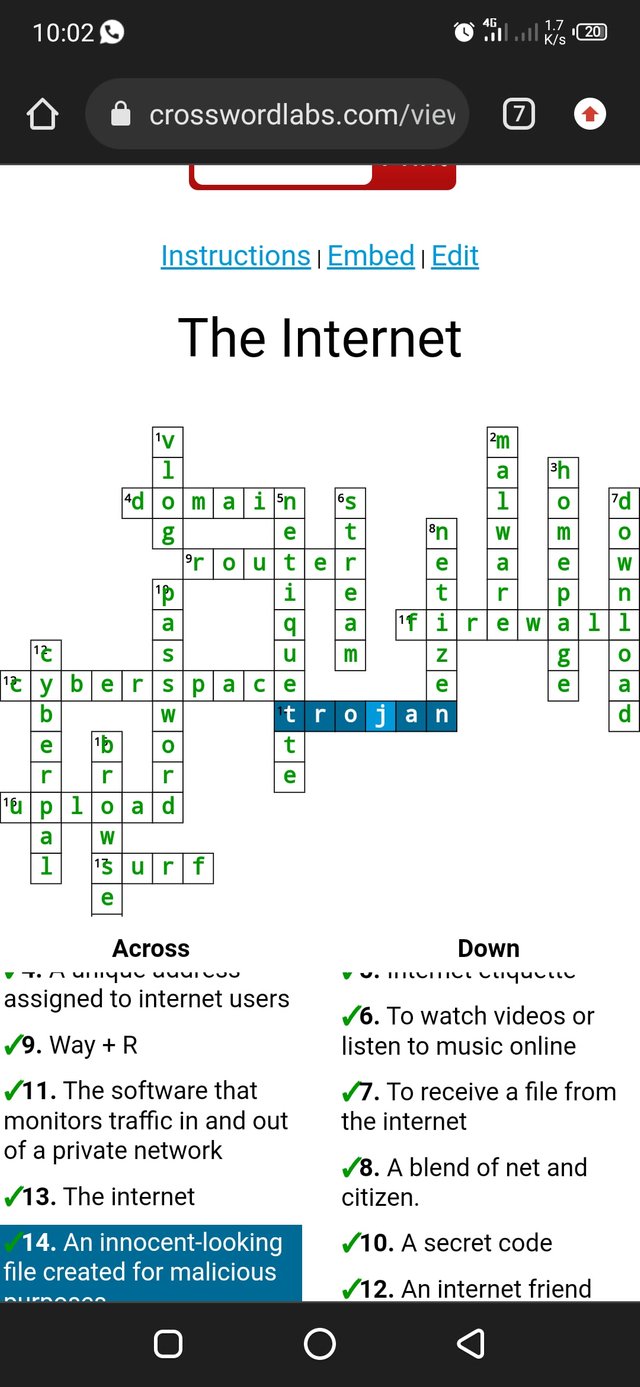Word Chest - W11 | Roots | Definition, Examples and Fun Activity | 5mins read


Published July 26, 2022
Hello and welcome to this week's English lesson with @ukpono. As you already know, Word Chest deals with a particular unit of the English language which is words. The primary focus at the moment is neither the phonological nor the syntactic structure, but rather, it is concerned with the semantic structure of words since this will be of immense value to you as a blogger or writer.
Every week, a new theme is chosen and dealt with extensively. Your tutor is very passionate about teaching you everything she knows about words and their usage. Maybe this explains why the lessons can be quite looooong sometimes. But not to worry anymore. I want you to learn and have some fun the same way I feel when I am compiling each week's lesson. The answer to last week's crossword puzzle is in the comment section.
You in? Let's dive!
In this lesson, you will learn:
- What a root is
- Where some words in the English language are derived from
- Explore Latin roots and finally,
- Be given appropriate examples for each root

WHAT IS A ROOT?
A root is a basic word that forms or develops other words. It is the meaning-bearing part of the word (i.e. the core of a word). Roots can either be an affix (e.g. prefix and suffix) or a base. Simply put, roots can appear at the beginning (i.e. prefix, example “mal–”, “extra–”, “post–” etc), in the middle as the base and at the end as a suffix.
Let me illustrate this using the word “comfort”. The base, in this case, is comfort. This is because it can form other words as well.
How is that possible?
It's simple. Add the suffix “-able”. Now, comfort + able has formed “comfortable”.
Another word can also be formed by adding the prefix “un–”. So, “un” + “comfortable” becomes uncomfortable.
Although the English language is a West Germanic language, a study of the etymology (origin) of its vocabulary reveals that many English words have Latin, Greek, French and Anglo-Saxon origins. Most roots are predominantly derived from Latin. This will be the focus for week 11.

Examples
| - | Latin Roots | Meanings in English | Examples of English Words |
|---|---|---|---|
| 1. | liber | free | deliver, liberate, illiberal, liberty |
| 2. | manus + factus | hand + made | manufacture |
| 3. | labor | work | labour |
| 4. | ager + cultus | field + tilled or plough | agriculture |
| 5. | recito | read aloud | recite, recitative |
| 6. | exclamo | I cry | exclaim |
| 7. | medicus | A doctor | medical |
| 8. | captivus | to capture or taken prisoner | captive, captivity |
| 9. | satis | enough or sufficient | satisfaction, satisfy |
| 10. | femina | woman | feminine, femicide |
| 11. | voco | to call | vocal, voice, vocalize |
| 12. | dico/dictum | said, spoken | contradict, dictation, verdict, diction |
| 13. | confirmo | declare/confirm | confirmation |
| 14. | elephantus | an elephant, ivory | elephant |
| 15. | sen | old | senior |
| 16. | script/scribe | to write | describe, script, proscribe |
| 17. | fac | to do | factory |
| 18. | jur | law | jurisdiction, jury, justice, justify |
| 19. | magnus | large | manificient |
SUMMARY
If you can understand the etymology of words, then you can easily deduce the meaning of any word.

ACTIVITY
Can you guess the English meanings of these Latin Words?
a) contra ____________________
b) septem ____________________
c) miser ____________________
d) manus ____________________
e) aqua ____________________
Write out English words which are derived from these Latin words. The first word has been done for you.
a) habito (I live) habitat, inhabit, habitation
b) duo (two) ____________________
c) annus (year) ____________________
d) vid/vis (to see) ____________________
e) circ (round) ____________________
f) bene (good) ____________________
e) hab (to have) ____________________
f) pac (peace) ____________________
g) terr (earth) ____________________
Guide
- Answers are to be submitted in the comment section.
- You can also post on the theme “ROOTS”. Please ensure to include your answers in the post and drop the link here so it can be reviewed easily.
There is going to be a reward of 1 STEEM to the first verified kid who will provide the correct answers.

What is the Word for the Week?
The word is Phobia. It means “an extremely strong dislike or fear of someone or something”. The phobia for closed or small spaces is called claustrophobia.
Are you scared of getting the answers wrong? That could be a phobia, you know. Overcome your fears by attempting as many questions as possible. The answers will be provided by next week.

@ibtisamwaqas @binwaqas @kishwarsumbal @bossj23 @madilyn02 @leyxi209 @ahbaz @geoscary21 @chukwu10 @dorismos @favour11 @princeifeko @yeri52 @katherine012 @fortwis09 @chimeroselam @ghani12 @wizzyboy3 @deben @tarazona14 @jlvillamizar @joymm @david-o @jueco @elyayo
I received eight amazing entries from some of my friends via DM. I will share the three most outstanding performances. I feel elated because the puzzle I created was not as difficult as I feared it might be.
a)
b)
c)
The link to the crossword puzzle is still available in case you want to play the game with your friends.
https://crosswordlabs.com/view/the-internet-223
Hello @ukpono, very good class!! Everything was understood and the dynamics to evaluate the children is very good!! Many successes!!
Thank you.